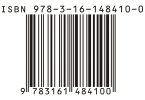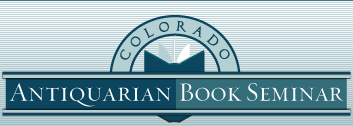Here’s a quick quiz for you: what do you think is the most commonly searched bibliographic field?
- Author
- Title
- Keywords
- Price
- Publisher
- None of the above
If you guessed #6, you are, of course, correct (why else would we put it there?). So what is the most used bibliographic field when customers are searching for books?
ISBN.
Ah, the lowly ISBN: arguably one of the most useful pieces of bibliographic detail for the majority of books published after 1971, but curiously reviled by many booksellers. In fact, even almost 40 years after the introduction of the ISBN, we still run across booksellers who don’t even include ISBNs in their uploads!
So, we thought we’d give a few minutes to play the apologetic for our under-appreciated number and dispel some common misunderstandings about the International Standard Book Number:
- The ISBN is ugly and cheapens my book descriptions. Far from it! Indeed, nothing enriches your listings more than accurate and complete bibliographic information.
- ISBNs are for megasellers and penny sellers. OK, yes, they use ISBNs. But so do the Library of Congress and the Bodleian Library. The ISBN is universally recognized as part of a bibliographic record.
- If I put the ISBN in, then you’ll attach stock photos to my listings. Not necessarily; if you don’t want stock photos associated with your book, you can either a) upload your own photo of the book in question (preferred), or b) send us an e-mail requesting that we disable that feature on your account.
- Nobody searches for books by ISBNs. As mentioned earlier, the ISBN is the single most used field when customers search for books on the internet. (In fact, perhaps surprisingly for many booksellers, recent sampling by Biblio indicates that the ISBN is used to search almost twice as often as the author and title fields combined!)
- OK, well none of my customers would ever search by ISBN. Perhaps… as long as you don’t include major research institutions, libraries or other bookstores among your potential customers. Even for these discriminating customers, the ISBN remains the single most valuable piece of data used to locate books on the internet: even if they are looking for first editions and signed books.
- My database software doesn’t have an ISBN field. That’s OK, too – many of the older ones don’t: simply type the ISBN in the description, and we’ll automatically parse it out for you.
- I would have to go back and add it to xx,xxx books I’ve already cataloged. Maybe you can go back and add them to some of your high points later on, but the important thing is to just start adding them for all new listings moving forward.
- I don’t know whether to include the 10 or 13 digit ISBN. No worries – include whatever is on the back cover or copyright page and we’ll sort out the 10/13 digit thing for you.
- The ISBN isn’t relevant for a rare or collectible title. If its published after 1971, it is, in the same way that a publisher or date is important: all are key pieces of the proper bibliographic record for that book, regardless of its scarcity.
While we completely agree that the ISBN isn’t nearly as sexy in a book listing as say, the abbreviation for octavo, we hope that this helps everyone to give the poor old ISBN some finally deserved respect as it heads into middle age.






Advanced search should include LCCN number (Library of Congress Card Number), which has been used since 1900, and OCLC number(Online Computer Library Catalog number), which is an unique number used by all libraries worldwide and by researchers. Again, parse it from descriptions like ISBN
We usually give STC, Wing, ESTC and NSTC numbers for our more recently catalogued pre-1900 stock. They are surely the equivalent of ISBNs for pre-1900 British titles. Could these be parsed from descriptions also? LCCN and OCLC numbers are chiefly useful for American books and are generally less specific anyway with regard to issues and editions.
I avoid ISBN numbers because other sellers use them to compare prices and price themselves lower. That’s why it’s the most commonly used search tool. Maybe we should try a few test cases and see if it makes a difference.